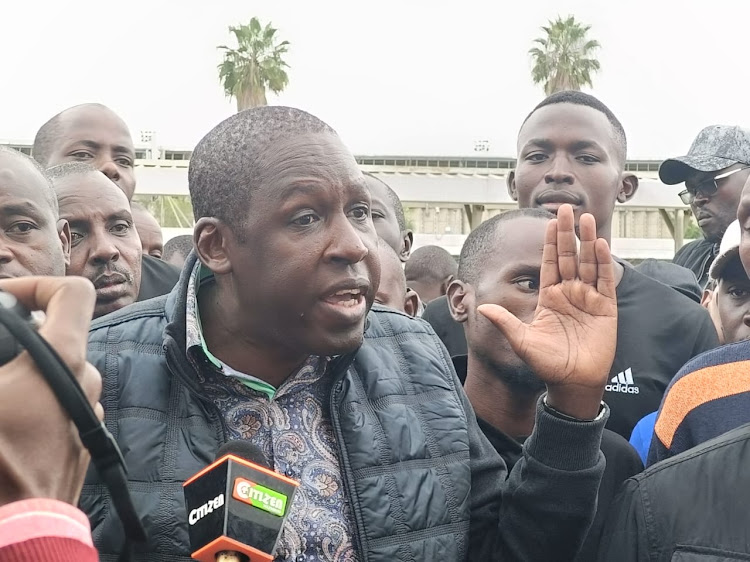The aviation sector in Kenya is facing a critical juncture as workers at Jomo Kenyatta International Airport (JKIA), the country’s largest airport, demand the resignation of top officials at the Kenya Airports Authority (KAA) and Kenya Airways (KQ). The workers, represented by the Kenya Aviation Workers Union (KAWU), have issued an ultimatum, threatening to initiate a strike next week if their demands are not met.
The core of the workers’ grievances centers around the failure of the KAA and KQ leadership to address long-standing issues, including the lack of salary reviews for the past eight years. This stagnation in wages has fueled discontent among employees who feel their concerns have been consistently ignored by the authorities. Additionally, the union has expressed strong opposition to the proposed lease of JKIA to Adani Airport Holdings Limited, a move they believe is detrimental to the interests of the airport and its workers.
Moss Ndiema, the Secretary-General of KAWU, has made it clear that the union will not engage in any negotiations with the government until the top officials of KAA and KQ resign. Ndiema’s stance is firm: the resignation of these officials is a prerequisite for any further discussions. He emphasized that the union had already given an informal notice to the government and KAA to withdraw from the Adani deal and to implement changes in the top management of both organizations.
The union’s demands are far-reaching, extending beyond the resignation of a few key individuals. They have called for the entire Board of Directors of the KAA to step down within a specified notice period. Specific individuals targeted for removal include KAA Acting Director General Henry Ogoye, General Manager Human Resource Development Anthony Njagi, General Manager Engineering Meshack Ochieng Otwaro, Kenya Airways Head of Security Bernard Oganga, and Security Operations Manager James Kiprono Ng’eno. The union accuses these officials of gross misconduct and of being involved in the controversial Adani deal, which they argue is unlawful and reflects a broader culture of impunity within the organization.
Furthermore, the union has pointed to three additional KAA managers and two KQ managers, identified in letters dated August 6 and August 7, 2024, respectively, who are also implicated in the alleged unlawful activities. KAWU has demanded their resignation within the notice period, underscoring the union’s determination to hold those they perceive as responsible for the sector’s woes accountable.
Ndiema has issued a stern warning to the government and the relevant authorities: if the union’s demands are not met within the next seven days, KAWU is prepared to mobilize all aviation workers in a strike action. This would likely cause significant disruption to operations at JKIA, one of the busiest airports in Africa, and could have broader implications for the aviation sector and the country’s economy as a whole.
The situation at JKIA highlights the ongoing tensions between aviation workers and management, with the proposed Adani deal serving as a flashpoint for broader dissatisfaction. The union’s call for resignations and their opposition to the Adani contract reflect deep-seated concerns about the management of the aviation sector in Kenya, particularly in relation to transparency, accountability, and the protection of workers’ rights.
As the deadline for the union’s ultimatum approaches, the government and the management of KAA and KQ face a critical decision. Whether they will accede to the union’s demands or risk a potentially crippling strike remains to be seen. However, the outcome of this standoff will undoubtedly have significant implications for the future of Kenya’s aviation industry.



